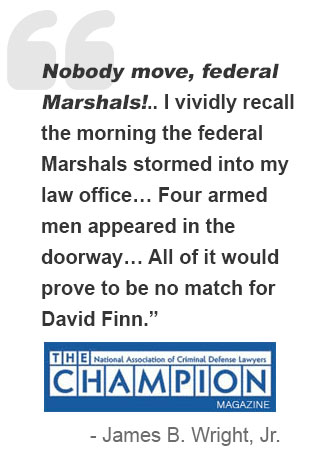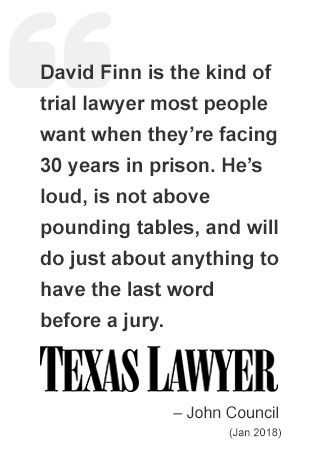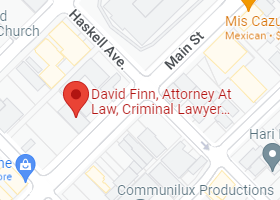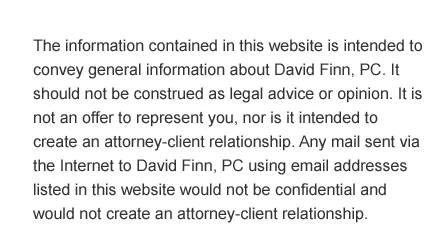


Expunction Update-July 2008
2007/2008 Expunction Law Update
Â
Case Law and Statutory Changes
Â
– Just the Highlights –
Â
Â
Larissa T. Roeder
Assistant District Attorney
Dallas County, Texas
214/653-3627
Fax: 214/653-3643
July 17, 2008
CASE LAW
Â
State v. Beam, 226 S.W.3d 392 (Tex. 2007)
    Â
     On June 1, 2007, the Texas Supreme Court issued an opinion upholding the line of cases, which required the expiration of the statute of limitations as a condition precedent to the expunction of arrest records in all cases where the arrested person was NOT charged by indictment with the commission of a felony offense.
·       Dallas County Dist. Attorneyâs State v. Bhat, 127 S.W.3d 435 (Tex. App.–Dallas, 2004, no pet.) (holding evidence legally sufficient to support order granting expunction of misdemeanor arrest for assault where statute of limitations had not expired, in case where charges were never filed and victim refused to file a complaint)
- Â Â Â Â Â Â Â Collin County Criminal Attorneyâs Office. v. Dobson, 167 S.W.3d 625 (Tex. App.–Dallas 2005, no pet.) (holding evidence legally insufficient to support expunction of misdemeanor arrest where statute of limitations had not expired)
- Â Â Â Â Â Â Â State v. L.T., No. 05-04-00759-CV, 2004 App. LEXIS 11610, *1 (Tex. App.–Dallas, Dec. 22, 2004, no pet.) (reversing order granting expunction where petitioner was arrested for assault, case filed with court, but later dismissed after the petitioner completed an anger management course, and the petitioner did not prove statute of limitations had expired).
- Â Â Â Â Â Â Â Collin County Criminal Dist. Attorneyâs Office v. Russell, No. 05-04-00100-CV, 2005 App. LEXIS 105, at *1 (Tex. App.–Dallas, 2005, no pet.) (not designated for publication) (providing proof that statute of limitations expired is element of expunction in case where petitioner was arrested for a Class C misdemeanor offense).
- Â Â Â Â Â Â Â Collin County Crim. Dist. Attorneyâs Office v. Winger-Bearskin, No. 05-05-00924-CV 2006 Tex. App. LEXIS 1725 (Tex. App. Dallas Mar. 6, 2006) (reversed order granting expunction where the District Attorneyâs office rejected the case before filing – petitioner was arrested for misdemeanor assault and the statute of limitations had not expired).
- Â Â Â Â Â Â Â Dallas County Dist. Attorneyâs Office v. Hoogerwerf, NO. 2-05-034-CV, 2005 Tex. App. LEXIS 10424, * 8 (Tex. App.– Fort Worth, 2005 no pet) (reversing order granting expunction where the defendant was arrested but never indicted for sexual assault and where the statute of limitations had not expired).
Â
Rules for expunctions after Beam
Â
I.         DO NOT FILE A PETITION FOR EXPUNCTION ON A  MISDEMEANOR CASE, other than one resulting in an acquittal, UNTIL THE STATUTE OF LIMITATIONS HAS EXPIRED.
           This rule applies to:
- Â Â Â Â Â Â Â Â Â Â Â Â Â Â Â Â Â Memo agreement dismissals
- Â Â Â Â Â Â Â Â Â Â Â Â Â Â Â Â Â Dismissals after completion of a Divert Program
- Â Â Â Â Â Â Â Â Â Â Â Â Â Â Â Â Â Dismissals after completion of BIPP
- Â Â Â Â Â Â Â Â Â Â Â Â Â Â Â Â Â Cases dropped before being filed
- Â Â Â Â Â Â Â Â Â Â Â Â Â Â Â Â Â Cases where the victim filed an affidavit of non-prosecution
- Â Â Â Â Â Â Â Â Â Â Â Â Â Â Â Â Â âFriendlyâ? dismissals
- Â Â Â Â Â Â Â Â Â Â Â Â Â Â Â Â Â Dismissals based on payment of restitution
- Â Â Â Â Â Â Â Â Â Â Â Â Â Â Â Â Â Dismissals based on the defendantâs enlistment in military service
Â
           The State of Limitations on a misdemeanor offense is two (2) years from the date of the offense. Tex. Code Crim. Proc. Ann. art. 12.02 (Vernon Supp. 2007). However âThe time during the pendency of an indictment, information, or complaint shall not be computed in the period of limitation.â? Tex. Code Crim. Proc. Ann. art. 12.05(b) (Vernon Supp. 2007) (emphasis added). The Texas Department of Public Safety applies the Article 12.05 tolling provisions when calculating a petitionerâs eligibility for expunction, with limited exception.
            Tolling provisions are currently applied as follows:
- Â Â Â Â Â Â Â Where a person is arrested and no charges are filed, the statute of limitations is computed from date of offense to date of filing.
- Â Â Â Â Â Â Â Where charges are filed and later dismissed, the statute of limitations runs from the offense date until the date the case is filed, and then starts running again the date the case is dismissed.
- Â Â Â Â Â Â Â Exception: In cases where the defendant pleads to a lesser-included offense under the original information or indictment, a tolling objection will generally not apply and thus, the statute of limitations â calculated for the originally charged offense – is calculated from the date of offense.Â
Â
- Â Â Â Â Â Â Â Â Â Â Â Â Â Â Â Â EXPIRATION OF THE STATUTE OF LIMITATIONS APPLIES TO ALL UNINDICTED FELONY OFFENSES.Â
     What this means:
- Â Â Â Â Â Â Â Â Â Â Â Â Â Â Â Â Â A person arrested for the commission of a felony, BUT NEVER CHARGED, must wait the statute of limitations before filing a petition for expunction.
-                  A person charged by indictment with the commission of a felony and whose case has been dismissed after indictment, must wait the statute of limitations, TOLLING PROVISIONS CONSIDERED, before filing a petition for expunction unless he can prove the dismissal was based on an absence of probable cause. See
- Â Â Â Â Â Â Â Â Â Â Â Â Â Â Â Â Â A person arrested for a felony whose case is presented to the grand jury and results in a âno billâ? MAY be eligible for an expunction before the expiration of the statue of limitations. Â Â Â Â Â Â Â Â Â Â Â Â Â Â Â Â Â Â Â Â Â Â Â Â Â Â Â Â Â Â Â Â Â Â Â Â Â Â Â Â Â Â Â Â Â Â Â Â Â Â Â Â Â Â Â Â Â Â Â Â Â Â Â Â Â Â Â Â Â Â Â Â Â Â Â Â Â Â Â Â Â Â Â Â Â Â Â Â Â Â Â Â Â Â Â Â Â Â Â Â Â Â Â Â Â Â Â Â Â Â Â Â Â Â Â Â Â Â Â Â Â Â Â Â Â Â Â Â Â Â Â Â Â Â Â Â Â Â Â
** A grand jury âno billâ? may serve as a judicial determination of no probable cause, but, if the arresting or prosecuting agency considers the investigation to be active, the petitioner will not be able to establish that the case is âno longer pending,â? and thus, will not be able to establish eligibility for expunction under Article 55.01(a)(2)(B).
- Â Â Â Â Â Â Â Â Â Â Â Â Â Â Â Â Â In cases where a person charged by indictment with the commission of a felony offense, pleads to a lesser-included Class C offense under the felony indictment, and subsequently has his case dismissed after completion of a deferred adjudication probation, that person must prove the expiration of the statute of limitations for the original felony offense.Â
-                  Dismissal based on trial courtâs granting of a writ of habeas corpus – A person who is convicted or receives a deferred adjudication probation and subsequently has his case dismissed after the âtrial courtâ? grants a writ of habeas corpus, is probably NOT eligible to receive a petition for expunction because he cannot establish eligibility under 55.01(a)(1) â convicted and pardoned, 01(a)(2)(B) â no conviction or community supervision, or 55.01(c) â convicted and acquitted âby the court of criminal appeals.â?
Â
**Reminder, when establishing eligibility for expunction under Article 55.01(a)(2), the petitioner must establish his eligibility under all three sub paragraphs, 55.01(a)(2)(A), (B), and (C).
Â
- Â Â Â Â Â Â Â Â Â Â Â Â EXPIRATION OF THE STATUTE OF LIMITATIONS APPLIES TO INDICTED FELONY OFFENSES UNLESS THE PETITIONER CAN PROVE THE INDICTMENT WAS DISMISSED BECAUSE THE ORIGINAL INDICTMENT WAS ISSUED BASED UPON A MISTAKE OF FACT, FALSE INFORMATION, OR OTHER SIMILAR REASON INDICATING AN ABSENCE OF PROBABLE CAUSE AT THE TIME OF THE DISMISSAL TO BELIEVE THE PERSON COMMITTED THE OFFENSE. . . .
Where a petitioner seeks to expunge a âdismissedâ? felony case and the statute of limitations has not run, the petitioner must show both, that mistake, false information or other similar reason caused the indictment to be presented and that the fact of wrongful or mistaken presentment caused the dismissal. A finding that the presentment was made because of false information or mistake requires proof that the grand jury based its decision to indict on erroneous facts.Â
Â
Things that generally DO NOT show an absence of probable cause include:
- Â Â Â Â Â Â Â Â Â Â Â Â Â Â Â Â Â Â Â Â Â Â Â Â Â Â Â Â Â Proof that an indictment was dismissed because the evidence was insufficient to support a conviction does not establish an absence of probable cause. Harris County Dist. Attorneyâs Office v. M.G.G., 866 S.W.2d 796 (Tex. App.–Houston [14th] 1993, no pet.).
-                              Showing a case was dismissed after the court granted a motion to suppress evidence – inadmissible confession, illegally seized evidence, etc. â does not establish that the factual underpinnings to the presentment and indictment of the offense were incorrect. An absence of probable cause to effect a valid search and seizure âdoes not vitiate the probable cause necessary for a grand jury to believe that a defendant is guilty of an offense.â? Harris County Dist. Attorneyâs Office v. Pennington, 882 S.W.2d 529 (Tex. App.–Houston [1st] 1994, no pet.); Kendall v. State, 997 S.W.2d 630 (Tex. App.–Dallas, 1998, no pet.).Â
- Â Â Â Â Â Â Â Â Â Â Â Â Â Â Â Â Â Â Â Â Â Â Â Â Â Â Â Â Â A dismissal based on the Stateâs inability to locate the victim or a witness at the time of trial will generally not establish an absence of probable cause. Texas Depât of Pub. Safety v. Mendoza, 952 S.W.2d 560 (Tex. App.–San Antonio 1997, no pet.).
-                             A dismissal based on a victimâs refusal or inability to testify at trial does not establish that the case was dismissed because of false information, mistake, or other information indicating a lack of probable cause. Barker v. State, 84 S.W.3d 409 (Tex. App.–Fort Worth 2002, no pet).
STATUTORY CHANGES
Service to governmental agencies via electronic transmission
           Article 55.02, §§ 2(c)(2)(c) and 3(c) now authorizes the District Clerk to serve governmental agencies via âsecure electronic mail, electronic transmission, or facsimile transmission.â?
- Â Â Â Â Â Â Â Â Â Â Â Â Â Â Â Â Â Â Â Attorneyâs should change petitions and proposed orders to include service in accordance with these statutory changes.Â
Private entities that sell criminal history record information are now subject to orders granting expunction.
What to do:
-      List any private entities that sell criminal history record information purchased from DPS in your petition – as a party to be served by DPS. The District Clerkâs Office will not serve private entities or governmental agencies not located in this state.
-      If you know of a private company that continues to release information after an order of expunction is granted â DO NOT CONTACT ME. Notify the private entity and/or the Texas Department of Public Safety.
Applicable provisions:
-      A petitioner should now list in his petition, âprivate entities that compile and disseminate for compensation criminal history record information that the petitioner has reason to believe have information related to records or files that are subject to â? Tex. Code Crim. Proc. Ann. art. 55.02 § 2(b)(C) (Vernon Supp. 2007).
-      When an order of expunction is final, âThe Department of Public Safety shall also provide, by secure electronic mail, electronic transmission, or facsimile transmission, notice of the order to any private entity that is named in the order or that purchases criminal history record information from the department.â?  Code Crim. Proc. Ann. art. 55.02 § 3(c-2) (Vernon Supp. 2007) (emphasis added).
-      Government Code § 411.0851 provides: Duty of Private Entity to Update Criminal History Record Information; Civil Liability
- Â Â A private entity that compiles and disseminates for compensation criminal history record information shall destroy and may not disseminate any information in the possession of the entity with respect to which the entity has received notice that:
           (1) an order of expunction has been issued under Article            55.02, Code of Criminal Procedure; or
           (2) an order of nondisclosure has been issued under Section     411.081(d).(b) Unless the entity is regulated by the federal Fair Credit Reporting Act . . . a private entity described by Subsection (a) that purchases criminal history record information from the department or from another governmental agency or entity in this state:
Â
Â
Â
Â
Â
Â
Â
Â
           (1) may disseminate that information only if, within the 90-      day period preceding the date of dissemination, the entity:
                       (A) originally obtains that information; or
                       (B) receives that information as updated record                                     information to its database; and
           (2) shall notify the department if the entity sells any       compilation of the information to another similar entity.
(c) A private entity that disseminates information in violation of this section is liable for any damages that are sustained as a result of the violation by the person who is the subject of that information. A person who prevails in an action brought under this section is also entitled to recover court costs and reasonable attorneyâs fees.
Tex. Govât Code Ann. § 411.0851 (Vernon Supp. 2007).
-      § 552.1425. Civil Penalty: Dissemination of Certain Criminal History Information
           (a) A private entity that compiles and disseminates for compensation   criminal history record information may not compile or disseminate       information with respect to which the entity has received notice that:
                       (1) an order of expunction has been issued under Article                                    55.02, Code of Criminal Procedure;
                       (2) an order of nondisclosure has been issued under Section                            411.081(d).
                                   (b) A district court may issue a warning to a private                                 entity for a first violation of Subsection (a). After receiving a                                   warning for the first violation, the private entity is liable to                                    the state for a civil penalty not to exceed $1,000 for each                           subsequent violation.
                                   (c) The attorney general or an appropriate prosecuting                            attorney may sue to collect a civil penalty under this section.
                                   (d) A civil penalty collected under this section shall be                          deposited in the state treasury to the credit of the general                            revenue fund.
Tex. Govât Code Ann. § 552.1425 (Vernon Supp. 2007).
Changes to the Government Code regarding petitions for nondisclosure:
-                  âA person is entitled to petition the court under Subsection (d) only if during the period of the deferred adjudication community supervision for which the order of nondisclosure is requested and during the applicable period described by Subsection (d)(1), (2), or (3), as appropriate, the person is not convicted of or placed on deferred adjudication community supervision . . . .â?  Govât Code Ann. § 411.081(e) (emphasis added)
* This means that a defendant who is convicted or placed on deferred for one offense WHILE on deferred for another offense, cannot have the 1st offense sealed. LESSON: if more than one case is pending, dispose of all of them on the same day.
-                  âNot later than 10 business days after receipt of relevant criminal history record information contained in an order or a copy of an order under Subsection (g), the Department of Public Safety shall seal any criminal history record information maintained by the department that is the subject of the order. The department shall also send all relevant criminal history record information contained in the order or a copy of the order by certified mail, return receipt requested, or secure electronic mail, electronic transmission, or facsimile transmission to all . . . (3) private entities that purchase criminal history record information from the department or that otherwise are likely to have criminal history record information that is subject to the order. Govât Code Ann. § 411.081(g-1) (emphasis added).
-                  Not later than 30 business days after receipt of relevant criminal history record information contained in an order or a copy of an order from the Department of Public Safety under Subsection (g-1), an individual or entity described by Subsection (g-1)(1) shall seal any criminal history record information maintained by the individual or entity that is the subject of the order. Govât Code Ann. § 411.081(g-1).
- Â
- Â
- Â
Phone Numbers
Office: (214) 538-6629







